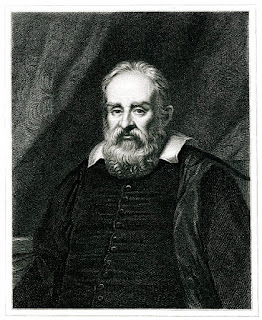Who Was Galileo?
Galileo was an Italian cosmologist, mathematician, physicist, scholar and educator who mentioned spearheading objective facts of nature with enduring ramifications for the investigation of material science.
He likewise developed a telescope and upheld the Copernican hypothesis, which underpins a sun-focused nearby planetary group. Galileo was blamed twice for sin by the congregation for his convictions, and composed various books on his thoughts.
His Early Life
Galileo Galilei was brought into the world in Pisa in the Duchy of Florence, Italy, on February 15, 1564.
Galileo was the first of six youngsters destined to Vincenzo Galilei, a notable artist and music scholar, and Giulia Ammannati. In 1574, the family moved to Florence, where Galileo began his proper schooling at the Camaldolese religious community in Vallombrosa
His Schooling
In 1583, Galileo entered the University of Pisa to Study medication. Equipped with huge knowledge and drive, he before long got intrigued with numerous subjects, especially math and physical science.
While at Pisa, Galileo was presented to the Aristotelian perspective on the world, at that point the main logical position and the just one authorized by the Roman Catholic Church.
From the start, Galileo upheld this view, similar to some other scholarly of his time, and was on target to be a college educator. In any case, because of monetary troubles, Galileo left the college in 1585 preceding acquiring his degree.
Profession as a Professor
Galileo kept on considering math subsequent to leaving the college, supporting himself with minor instructing positions.
During this time he started his two-decade concentrate on objects moving and distributed The Little Balance, portraying the hydrostatic standards of gauging little amounts, which presented to him some acclaim. This acquired him a showing post at the University of Pisa, in 1589.
While there, Galileo led his famous analyses with falling items and created his composition Du Motu (On Motion), a takeoff from Aristotelian perspectives about movement and falling articles. Galileo built up a self-importance about his work, and his grating reactions of Aristotle left him secluded among his associates. In 1592, his agreement with the University of Pisa was not reestablished.
His Telescope
In July 1609, Galileo found out about a straightforward telescope worked by Dutch eyeglass creators and before long created one of his own. In August, he showed it to some Venetian vendors, who saw its incentive for route and spotting ships. The traders gave Galileo a compensation to produce a few of them.
Galileo's desire drove him to go further, and in the fall of 1609 he settled on the critical choice to turn his telescope toward the sky. Utilizing his telescope to investigate the universe, Galileo noticed the moon and discovered Venus had stages like the moon, demonstrating it pivoted around the sun, which disproved the Aristotelian tenet that the Earth was the focal point of the universe.
He additionally found Jupiter had spinning moons that didn't rotate around planet Earth. In 1613, he distributed his perceptions of sunspots, which likewise disproved Aristotelian regulation that the sun was awesome.
His Books
Galileo distributed various books all through his profession, including:
The Operations of the Geometrical and Military Compass (1604), which uncovered Galileo's abilities with tests and reasonable innovative applications.
The Starry Messenger (1610), a little booklet uncovering Galileo's disclosures that the moon was not level and smooth but rather a circle with mountains and cavities.
Talk on Bodies in Water (1612), which discredited the Aristotelian clarification of why items glide in water, saying that it wasn't a direct result of their level shape, however rather the heaviness of the article according to the water it uprooted.
Exchange Concerning the Two Chief World Systems (1632), a conversation among three individuals: one who bolsters Copernicus' heliocentric hypothesis of the universe, one who contends against it, and one who is fair-minded. In spite of the fact that Galileo asserted Dialogs was nonpartisan, it was unmistakably not. The supporter of Aristotelian conviction seems to be the nitwit, getting trapped in his own contentions.
Two New Sciences (1638), a synopsis of Galileo's all consuming purpose on the study of movement and strength of materials.
What Did Galileo Galilei Discover?
Notwithstanding the telescope and his various numerical and logical revelations, in 1604 Galileo developed a hydrostatic equilibrium for estimating little articles.
That very year, he likewise refined his hypotheses on movement and falling articles, and built up the general law of increasing speed, which all items in the universe complied. He likewise conceived a kind of basic thermometer.
Thermometer
A basic glass-bulb thermometer known as a Galileo thermometer wasn't developed by Galileo, yet depended on his agreement that the thickness of fluids changes dependent on its temperature.
A thermoscope that Galileo planned (or assisted with planning) is like current thermometers. Inside the thermoscope, a fluid ascents and falls in a glass tube as the temperature of the fluid ascents or falls.
How Did Galilei Die?
Galileo passed on subsequent to experiencing a fever and heart palpitations on January 8, 1642, in Arcetri, close to Florence, Italy.
Galileo's commitment to our comprehension of the universe was critical for his disclosures, yet for the strategies he created and the utilization of math to demonstrate them. He assumed a significant part in the Scientific Revolution and acquired the title "The Father of Modern Science."




0 Comments
Don't post spam messages